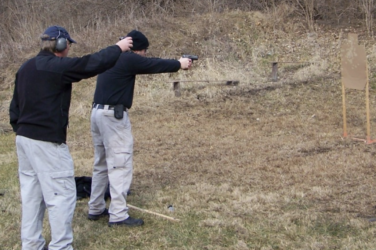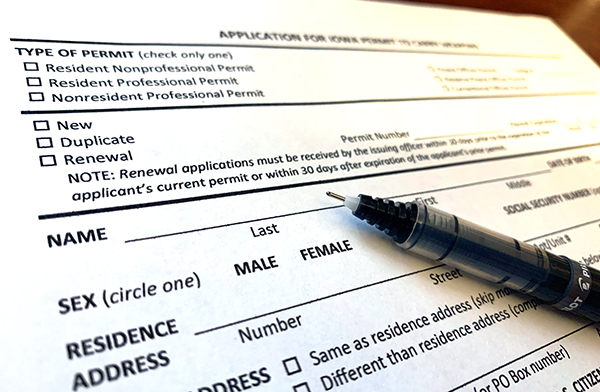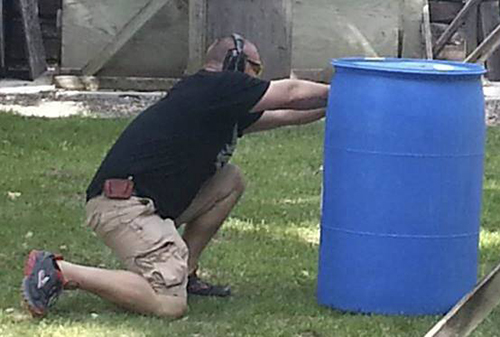When I started in law enforcement 10 years ago I had my first experience with formal self-defense training. The training was great and I felt like I was prepared for anything. I was proficient in several weapon systems and I was proficient in fighting hand to hand; but I wasn’t proficient in fighting to my weapon, or fighting with my weapon in close quarters. My training just didn’t address the area where these worlds overlap. This training gap is even more prominent for the everyday citizen who doesn’t get hours of training every year, or deal with combative people on a regular basis.
While range and classroom drills are vital to learning to defend yourself they rarely go beyond mental scenarios and square range drills. Standing face to face with a stationary target is a great way to learn and practice the fundamentals of shooting but this will rarely translate directly to the real world. This isn’t to say these type of drills aren’t important; they just aren’t enough. The problem is that there is never enough time in these classes to cover everything that is necessary. Even if there were, your mind can only absorb so much information at a time.
For these reasons I began working with Darin VanRyswyk and CWR Firearms Training to develop a class that would address this training gap. The goal was to develop a course that would build a strong foundation on which a house of self-defense could be built. Principles of Armed Self-Defense is designed to build a reliable foundation upon which any weapon can be inserted. If you already carry a weapon this is the next step in the self-defense training progression. If you are just considering self-defense and you are new to training this is your chance to start with a clear lot and begin building good habits. While the course is primarily designed around the use of a firearm the principals are meant to translate to other self-defense weapons. Whether you carry pepper spray or a knife, or simply need to rely upon your hands & feet this course is meant for you.
In order to be efficient and effective in defending yourself you must learn to use your mind and body together. In this course we start with a 4 part concept for addressing potential, or actual, threats. This prepares the mind. The goal is to avoid conflict and deal with it efficiently if avoidance is not possible.
We then build a strong defensive stance and learn how to use the structure of the body to protect oneself without wasting energy. This is the foundation of the house and the structure on which the entire defensive process sits. Next, we add in footwork and principles of creating distance and angles. Think of this as grading the dirt around the foundation to protect it from damage.
Next we cover weapon retention so your weapon isn’t taken and used against you, or deflected off target making it ineffective. Where you carry your weapon, and how you present it, can have a major impact on the outcome of a use of force encounter. Finally we cover accessing weapons from a variety of positions and situations because it is never as simple during a real incident as it was on the range.
During this class you will build a strong foundation to protect yourself and efficiently access your weapon, if necessary, in a use of force encounter. It is truly the next step in learning to defend yourself whether you intend to use a weapon, or not.
For more information on this new course please contact [email protected].


